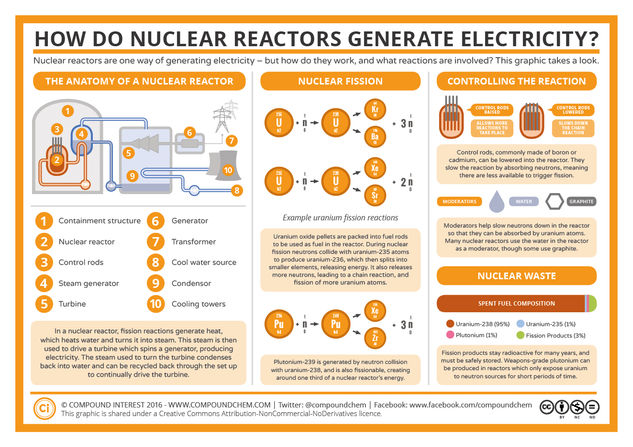© Compound InterestHow Nuclear Reactors Work
In terms of types of reactor, there are two main variations on the above theme for western reactors. The variations are related to the water that’s heated to produce the steam that drives the turbine. In boiling water reactors (BWR), the source of the steam that drives the turbine is water in the reactor core; this means that short-lived radioactive substances pass through the turbines, so they must be shielded when the reactor is active. In pressurised water reactors (PWR), the water heated in the reactor is contained under pressure, and used to produce steam in a secondary loop of water which then goes on to turn the turbines. The majority of western nuclear reactors are PWRs.







